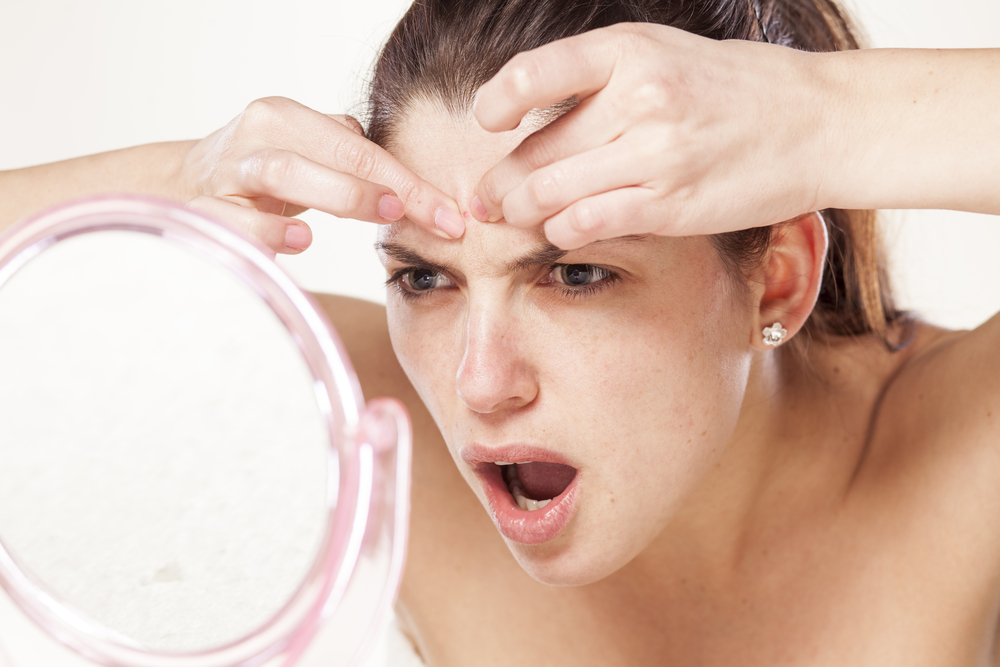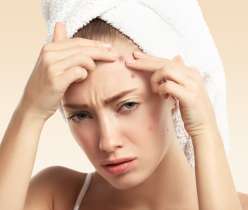Acne is the most common skin problem among young adults. Everyone might have been a victim of acne once in their lifetime. There are some acne risk factors, and it requires patience and time to heal. Many acne medications are available that promise to reduce the appearance of acne, but not all of these works. It is important to find a treatment that incorporates effective acne fighting ingredients. Your acne medications should be clinically supported and tested. Everyone deserves to have clear skin, and acne treatments help you get it. Read to learn more about acne, and its treatment options.
Know about a pimple
A pimple is a skin condition that starts with a skin pore getting plugged up. A pore consists of a small hair root and oil glands at its base. The skin cells and oil stick together and form the serum that plugs the pores. The body immune system then tries to open the pores to cause a swelling or a pimple. If the pores are closed, then it forms a whitehead, and if it is open, then it causes a black head.
Acne causes and risk factors:
The exact cause of acne is not known. Usually, some factors are blamed to cause acne:
- Hormonal changes: common in teenage girls and women.
- Family history: if both the parents have acne, it is most common for you to have acne
- Greasy or oily beauty products: if you are using creamy and greasy lotions then they are more likely to cause plugging of the pores and cause a pimple
- Stress: it is not the cause of acne but if you stressed acne was bound to become worse
- Too much friction and pressure on the skin: the friction is caused by items like mobile phones. Harsh pillow covers and helmets, etc.
Risk factors of acne are varied. Most likely, acne is caused due to hereditary and hygiene reasons. However, acne can become worse under the following conditions:
- The changing hormone levels in the girls and women just two to three days before the period starts.
- Use of chemical-containing skin and hair care products. These products are laden with chemicals that might create and allergic reactions on the sensitive skin.
- Pollution may also cause irritation on the sensitive skin and lead to skin breakouts. The pollutants might clog the pores of the skin causing an acne breakout.
- Wearing tight fitted clothes in summers can act as a breeding ground for the harmful bacteria. When sweat combines with tight fitted clothes, then it can surely become one of the biggest risk factors of acne breakout.
- Rubbing and irritation on the skin can also cause acne breakouts, like shoulder pads (in football players), Helmets, bra straps, the turtleneck dresses. These irritate the skin that may further result in inflammation and acne breakouts
- Washing the face too often with harsh soaps can also prove to be a great risk factor for acne. The soap washes of any moisture from the skin and may cause irritation on the sensitive parts of the face. The chemical may cause allergic reactions and may develop to form pimples.
- Touch the face frequently with hands is also a big reason for the acne breakout. When we touch our face with our hands, the dirt and microbes from the hands are transferred to the face and may cause acne.
- People who sweat a lot are also prone to have acne.
- People who work in close contact with the chemicals can also develop skin allergic to various chemicals.
- People taking certain medications containing corticosteroids, barbiturates, and lithium can also have a risk of getting acne.
Also Read: Ways to Boost your Testosterone Levels
Acne diagnosis before treatment
The first part of any treatment plan is the diagnosis. It is important to start with understanding acne, itself. The severity of acne determines these best acne treatment. If you are dealing with mild acne and experience occasional breakouts, you may self-diagnose the condition and treat it with right acne products. In case you have severe acne, it is essential to make an appointment with a dermatologist as soon as possible and get the right treatment done for your acne problems.
Treatment of acne:
Acne medications are different for different people. Those who have acne prone skin should visit the doctor to get an idea of the problem. Only a doctor will be able to suggest a medication after the thorough check-up.
Some acne treatment and care tips:
- The common acne medications are mostly the antibiotics, tretinoin, isotretinoin, and clindamycin, etc. The doctor might prescribe you the topical or oral medications or both
- Always apply medication away from eyes
- Shampoo hair regularly and keep it away from the face
- 4. Acne occurs in men due to excess shaving, sweating or due to health or hormonal problems. The best treatment for acne in men is using skin cleansers to remove the dead skin layers from the skin
- Never squeeze the pimples as they may cause scars
- Hygiene is very necessary, hence wash face daily two times with a mild face wash
Conclusion:
Acne can turn into a very severe condition if not treated on time. There are several risk factors of acne eruption, and the base of the treatment relies on the removal of the risk factors. So, one should know the reason behind the problem to find a cure for it. Buy acne medications after consulting a dermatologist and use it to get rid of acne problems. Furthermore, follow the tips given above to ensure a healthy and acne-free skin.
Also Read: Visible air pollution leads to invisible brain problems



